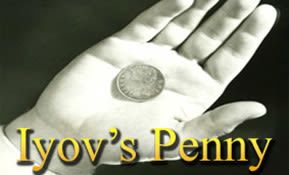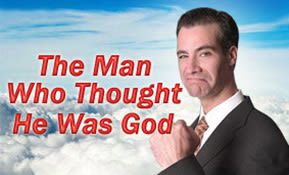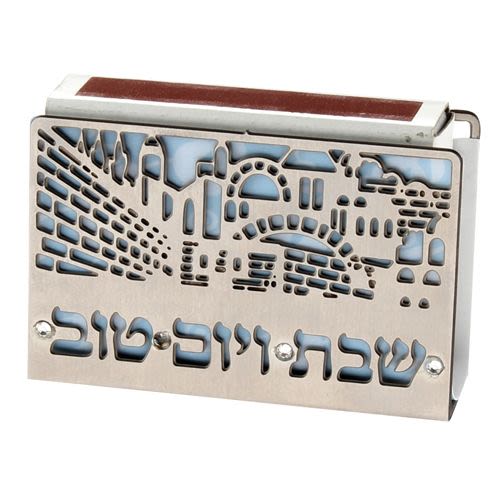
Matot: The Baal Shem Tov’s Anger
"I can't ever remember seeing anyone being so angry. And then raising his hand to strike someone, even a servant. And especially on Shabbat," he kept thinking.

Parshat Matot
As soon as the Baal Shem Tov entered his house, he became very angry at his servant and started to yell at him to go to the barn and save a horse that was choking to death.
"Moshe (Moses) was angry" (Bamidbar, 31:14).
THE BAAL SHEM TOV'S ANGER
Once, the Lithuanians (called Litvaks) sent someone to observe the Baal Shem Tov and see if the stories about him were really true. The Litvak was received as an honored guest, since no one knew the real reason for his visit. He stayed as a guest in the house of Rabbi Yechiel of Kovel and ate his meals with the Baal Shem Tov.
Shabbat arrived and the Litvak felt a spiritual uplift from being in the presence of the Baal Shem Tov during the Maariv (evening) prayers. "My God," he thought, "everything they say about him is true!"
Then, while still in this elated mood, he accompanied the Baal Shem Tov home for the Shabbat evening meal. As soon as the Baal Shem Tov entered his house, he became very angry at his servant and started to yell at him to go to the barn and save a horse that was choking to death.
The servant answered, "Rabbi, I'm going right now!"
Suddenly, the Baal Shem Tov yelled out in a fit of anger. "Didn't you hear me? I said go now!" And then, the Baal Shem Tov actually raised his hand as if to strike the servant. The servant went running from the house to the barn and arrived just in time to save the horse from choking to death.
The Litvak was shocked to see the Baal Shem Tov display so much anger. "After such davening (prayer)," he thought, "how can he come home and get so angry over a horse and especially on Shabbat?"
The next morning, during the Shabbat prayers, again the Litvak was spiritually uplifted by the Baal Shem Tov's prayers. But this time, the display of fierce anger by the Baal Shem Tov clouded his mind. "I really can't ever remember seeing anyone being so angry. And then raising his hand to strike someone, even a servant. And especially on Shabbat," he kept thinking.
Before the Litvak left for home, he couldn't stop himself from telling Rabbi Yechiel what happened. "Rabbi Yechiel, I must tell you, on Shabbat night when the Baal Shem Tov came home, he was so angry that he…"
When he completed the story, he said, "The community in Lithuania will be very surprised about this behavior."
As soon as he left, Rabbi Yechiel passed his comments onto the Baal Shem Tov.
The Baal Shem Tov responded with great annoyance in his voice, "Who are they to come here and judge me?"
"Let me tell you what happened," he continued. "A Jewish merchant was traveling by wagon right before Shabbat. He was rushing in the hope of finding a village or inn for Shabbat. But before he could reach one, night fell and Shabbat arrived. He was forced to turn off the road and spend Shabbat in a field.
Later that night, a band of thieves came upon the merchant and began to beat him. The thieves planned on killing him, taking his money and the wagon filled with his merchandise. This Jewish merchant was so coarse that I could only make contact with him through an animal. So I arranged for the horse to get caught up in a halter. Then, I frightened my servant, and the more I frightened him, the more the thieves were frightened. Finally, when I screamed at him and raised my hand to strike him, the thieves fled. This Jewish merchant will soon come here to see me and you will hear from him that everything I said is as I said."
And so it was.
* * *
“If a man takes a vow to God or swears an oath to prohibit himself (from something which the Torah permits), he shall not violate his word (and) he must act in accordance with whatever he uttered.” (Bamidbar 30:3).
There exist very stringent halachot (Torah laws) with regard to oaths. A person is only permitted to take a vow abstaining from something which is relevant to the Beit HaMikdash (Holy Temple in Jerusalem which was destroyed approximately 2,000 years ago).
For example, taking a vow to refrain from one’s wife would immediately be annulled, since this has no bearing on the Beit HaMikdash. Additionally, a vow only is legitimate if it is actually verbalized. However, the actual language which is spoken does not matter; rather it is the intention of the oath giver. If a person has the intention to go without wine but mistakenly says bread, neither is forbidden to him. Amazingly, if a person made a vow in a dream, it is legitimate and he must have it nullified properly. Conversely, if one dreams that a vow was nullified, this is not regarded as valid.
One may wonder the reason to take an oath, and the Midrash gives three explanations. First, if a Jewish person strays from the Torah path, a vow is an excellent way to toughen his resolve to do Teshuvah (return to God). Second, if there is anoccasion to do a mitzvah (Biblical commandment), one may take an oath to do this mitzvah. Third, Yitzchok’s (Isaac) son Yaakov (Jacob) had the custom of making oaths in difficult times. However, it is clear that taking oaths frivolously is highly disregarded and considered a sin.
There is a prescribed manner in which to nullify an oath, if desired. He must confer with three Rabbis who specialize in the halachot of vows. They decide and declare that he was not familiar with the consequences of taking such an oath because if he had been aware, he would not have done so. If he sufficiently regrets the oath, the three Rabbis have the authority to nullify it.
The Broken Promise
It happened that there were two chassidim who were best friends throughout their lives. As they reached old age, they made a solemn oath. Whichever man passed onto the next world first would return in a dream and describe the World to Come to the other. The first man to pass on fulfilled his promise. When he came to the other in a dream, he had troubling news.
“There is a great amount of Torah study here, but the righteous men of Heaven will not include me in their discussions.”
“That’s terrible news,” exclaimed the one still living. “Maybe you should consult with the Baal Shem Tov for guidance.”
Sure enough, the deceased followed his friend’s advice and came to the Baal Shem Tov in a dream. “Rebbe, you have to help me! I’m being ignored in Heaven.”
“What is the subject of Torah they are now discussing?” asked the Baal Shem Tov.
The chassid responded, “It’s a certain section found in the Holy Zohar.”
“There is a confusing topic in that section of the Zohar,” said the Baal Shem Tov. “I will explain it to you, and you can join the discussion when no one else will be able to expound on that topic.”
The chassid was overjoyed, but the next night returned to the Baal Shem Tov. “Rebbe,” he cried, “the others were very happy to hear your teaching, but they continue to act as if I’m not there.”
“You only have one option at this point. You must interrupt their Torah study until they tell you why you are being ignored.” The chassid followed the advice of the Baal Shem Tov and after persistent badgering, he got the answer.
“As long as you have an active oath in the physical world, you cannot participate in Torah study here. You are still connected with that world, and this bars you from a complete presence here. You must break your earthly promise with your friend, and only then can you learn with us.”
And so it was.
***
Tzvi Meir Cohn attended Yeshiva Hadar Hatorah in Crown Heights, Brooklyn after completing his university studies in Engineering and Law. While studying at the Yeshiva, he discovered a deep connection to the stories and teachings of the Baal Shem Tov. His many books about the Baal Shem Tov can be found in the Breslev Store. He can be contacted at howard@cohnpatents.com.











Tell us what you think!
Thank you for your comment!
It will be published after approval by the Editor.